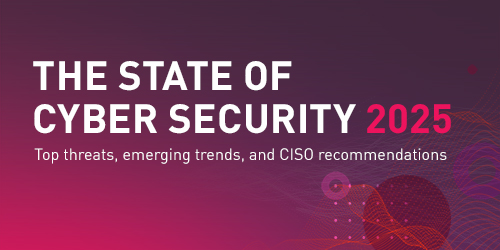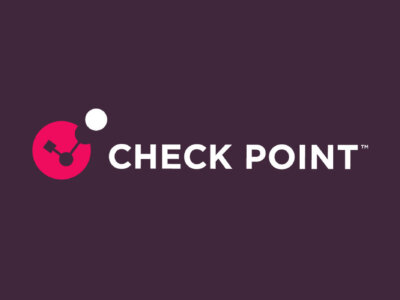
Breaking (Fire)Walls & Glass Ceilings: Women Leading Digital Revolution and Cyber Security’s Next Frontier
Cyber security is at the heart of today’s digital revolution, yet it remains one of the most male-dominated sectors in science and technology. Data from Zippia shows that while women hold 48% of roles in the broader workforce, they represent only 24% of the cyber security workforce. In leadership, the numbers are similar —just 16% of cyber security industry vice presidents are women, yet some companies, like Check Point, have exceeded this by reaching 20% female VPs globally.
This disparity isn’t just a pipeline problem—it’s also a perception problem. Girls and young women often don’t see cyber security as an accessible career path due to a lack of representation, industry stereotypes, and systemic barriers. But breaking into cyber security isn’t just about numbers; it’s about reshaping the future of digital defense with diverse perspectives, innovative problem-solving, and inclusive leadership.
Cyber Security’s Talent Shortage: A Missed Opportunity
The cyber security industry faces a critical talent shortage, with an estimated 4 million unfilled cyber security jobs worldwide according to a recent World Economic Forum report. Australia’s Cyber Security Sector Competitiveness Plan 2019 noted the country had a ‘severe shortage’ of job-ready security workers, with 17,000 more needed by 2026. Addressing this gap requires tapping into all available talent pools—and that means actively attracting and retaining women in cyber security.
Nataly Kremer, Chief Product Officer & Head of Research & Development at Check Point, underscores this urgency:
“Cyber security is an ultra-dynamic field where creativity and innovation are crucial. Fresh perspectives are essential to staying ahead of cyber adversaries. By attracting more women to cyber security, we not only address the talent gap but also enhance problem-solving and security outcomes.”
The Women Defending the Digital Front lines
Despite the challenges, many women have risen to leadership positions in cyber security.At Check Point, women hold 44% of top leadership positions, overseeing 78% of employees. This is a testament to the company’s commitment to mentorship, leadership programs, and inclusive hiring.
One example is Maya Horowitz, VP of Research at Check Point, who leads global efforts in threat intelligence and cyber defense. She emphasizes that cyber security needs more female leaders to drive innovation and stronger business outcomes:
“Closing the gender gap in cyber security is not just a matter of equality. We need to ensure cyber security careers are accessible and attractive to women. This includes education, professional development, inclusive recruitment measures, and mentorship programs.”
Women leaders like Horowitz are paving the way for the next generation, proving that diversity strengthens cyber security by bringing in different problem-solving approaches and perspectives.
Cyber Security Needs More Women—But Where Are They?
If cyber security desperately needs talent, and women are proving their ability to lead, why aren’t more women entering the field? The barriers are deep-rooted and multifaceted.
- Lack of Early Exposure & STEM Education Gaps
Despite progress, women remain a minority in STEM fields like computer science, engineering, and IT. A UNESCO science report, even though women make up 44% of PhD holders, only 33% of them stay in research roles.
To combat this, Check Point has launched several initiatives to introduce young girls to cyber security early, including:
- SecureAcademy Program – Integrating cyber security into university curricula.
- Graduate & Mentorship Programs – Offering training, networking, and career development for young women entering the field.
- Perception & Confidence Barriers
Many young women still do not see cyber security as a viable career path. The industry’s hacker culture and male-dominated image can be intimidating, deterring women before they even start.
Nataly Kremer points out, “You can’t be what you can’t see. Seeing women succeed in cyber security sets a powerful example for the next generation.”
- Career Progression Challenges
Even when women enter cyber security, they face challenges moving up the ranks. Women are less likely to be promoted to senior positions, despite being equally productive. Studies show that:
- Women receive 25% less research funding than men according to a recent A UNESCO science report titled, “To be Smart, the Digital Revolution will Need to be Inclusive.”
- According to the UNESCO report, in New Zealand, a man’s odds of being ranked professor were more than double that of a woman with similar qualifications.
This is why mentorship, sponsorship, and leadership training programs are critical to helping women advance in cyber security.
Building the Future: How to Get More Women into Cyber security
- Industry Support & Inclusive Hiring
Companies need to go beyond hiring quotas and create genuine opportunities for women to thrive. At Check Point, 41% of new hires in the EMEA region are women, a step toward balancing representation.
- Stronger Mentorship & Leadership Development
- Check Point’s FIRE (Females in Roles Everywhere) initiative is dedicated to fostering a strong network of women in cyber security.
- Formal mentoring programs help women navigate career challenges, gain confidence, and access leadership roles.
- Changing the Narrative
Cyber security isn’t just about hacking and coding—it’s about problem-solving, risk management, and protecting digital communities. Encouraging women to explore diverse roles in cyber security, from AI-driven security to cyber law, can expand interest and participation.
A Call to Action
As we celebrate International Day of Women & Girls in Science, it’s clear that cyber security needs more women—not just to close the talent gap, but to create stronger, smarter, and more inclusive digital defenses.
- If you’re a woman considering a career in cyber security, seek out training programs, mentorships, and networking opportunities.
- If you’re a cyber security professional, advocate for more inclusive hiring and leadership opportunities.
- If you’re a business leader, invest in diversity programs—because a more inclusive cyber security industry is a stronger one.
The future of cyber security depends on breaking both (fire)walls and glass ceilings. We can each do much more to ensure the next generation of cyber defenders sees women leading the way.









